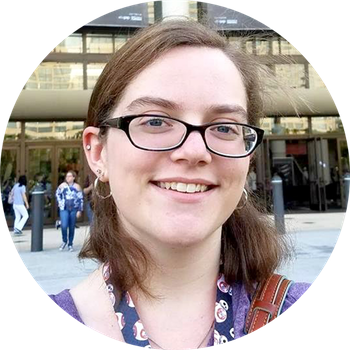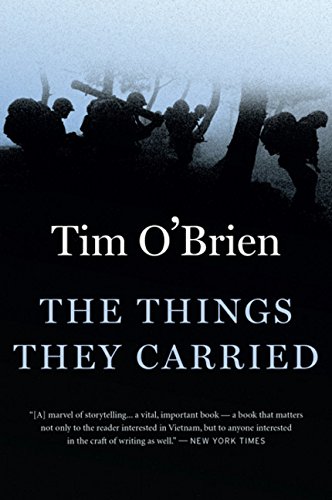The actual decision to major in English came about six months after I had graduated high school and was working on my associate’s degree at a state college in my city. Luckily, I was doing an associate’s in the arts, so there was no need to pick a major quite yet. For a long time, I was set on film or media studies. But a lot of anxiety and thinking was happening at that time, too. I was pretty lost on what I really wanted to study later on in my college career (and that “later” was coming fast).
And then it hit me one day when I was walking to my car from class.
What about majoring in English for my BA? It was something I had thought about a good amount when I was in middle school but it had been pushed to the back of my mind once I started high school. I sort of decided right then that English was what I wanted to pursue as my major and there was essentially no talking me out of it.
It was a way to study literature and it would also allow me a way to get some further education in creative writing.
Now, like just about every English major, I got (and still get) the usual questions and comments from my parents, friends and complete strangers when they found out what I was going to be studying: “So, do you want to be a teacher?” “You’re studying the liberal arts?” etc. There was a lot of concern, especially on my parents' part, about choosing to study English.
But I wound up applying to my university’s English program and got in with a minor in creative writing.
Now I’m a graduate with my BA in English and a minor in creative writing. I’m six months out of school and I’m currently at a job where I get to apply some of what I’ve learned! I hit plenty of road bumps along the way to get to where I am though. There have been plenty of thoughts that have come up that made me overthink my choice in major and doubt myself; here are a few of them:
Self-doubt: This is probably the most common issue I’ve seen in myself and other English majors. It will really come out of nowhere. I often caught (and sometimes still catch) myself doubting my choice to study English and my abilities in the topic when I was in class or working on projects. I was always seeing amazing work from classmates and thinking “I can’t do that” or “I don’t know anything about that author.” Or I’d see an article talking about how studying English is useless, even though I know that it isn’t. Both of those causes are really punches to the self-confidence and can be extremely hard to shake.
Stress: Just like any major, studying English can be insanely stressful! We most often have plenty of papers/essays/projects due at any one time and trying to figure out the right time to actually get said work done while reading assigned work and doing other things in life can be difficult.
Outside doubt: We all know what this is referring to. Friends, family, and even people you don’t know will ask you (skeptically) if you’re sure English is the right thing to pursue. And being English majors, we’ve done the research and looked into all sorts of jobs that you can get with the degree. But having consistent doubt and questioning thrown at you about your choice to study English can really drag you down.
Loss of passion: I have loved to read and write for my entire life. Reading for pleasure and to learn was always something that I would do voraciously. And my minor in creative writing gave me the ability to pursue that area of writing in the future. But being an English major, we constantly have to read books for class and then spend large amounts of time dissecting said books. This repeated process over and over can really sap the passion out of the two things that drove many of us into English in the first place.
Many times while I was studying for my BA, I lost interest in reading anything outside of what was assigned for classes, due to lack of time and no drive to read anything for fun. That usually led to me also losing interest in my assigned readings and I wound up having to force myself through the work.
Feeling inadequate among classmates: Sitting in class and discussing literature can often be really interesting. But sometimes I caught myself feeling that I was in the wrong place, that I didn’t know nearly enough to keep up with my classmates, or that I didn’t have anything to contribute to the conversation with some thoughtful insight.
These are perhaps some of the most common issues I experienced myself and saw in friends. They’re certainly things that can make us second guess why we’re studying English.
English is, unfortunately, one of the more looked down on fields of study, especially because it looks like all we do is read a huge amount and sit around talking about the deeper meaning of texts. And while we certainly do those things a lot, there is much more to what we are studying.
Doubting what I chose to study, something that I really do care about, really did nothing for me. All it did was make the choice I made that much more difficult.
And while these doubts can be difficult to overcome, I couldn’t help but find myself just thinking about the outcome. Once I finished my degree, I knew I would have a set of skills that could be applied to a wide range of different types of work.
That doesn’t always work, but it’s certainly a place to start. The doubts and questioning of yourself that come during the course of pursuing an English degree are completely normal and you’re certainly not alone in them. It took me quite some time to figure that out and once I did, it helped a little to know that I wasn’t the only one who questioned and stressed out over it.
And I think acknowledging the fact that you are not the only one dealing with doubt, stress, and anxiety over your degree will make things a little easier. To leave you with something to think on, here is a quote from Amanda Palmer in her book The Art of Asking:
“There's really no honor in proving that you can carry the entire load on your own shoulders. And... it's lonely.”
ABOUT THE AUTHOR
Paige Lyman has a BA in English with a minor in creative writing. She's a fan of sci-fi and fantasy and writes prose in her spare time. With a love for storytelling, she's constantly got her face buried in a book and hopes to one day publish a novel of her own. Being the huge nerd that she is, she loves a good discussion on plot, characters, and how to really make a story amazing! (Her own inspiration is to one day craft a world and story as engrossing as Avatar: The Last Airbender). With a love for English and creative writing, she's dabbled in all types of writing and has no plans to stop.































































